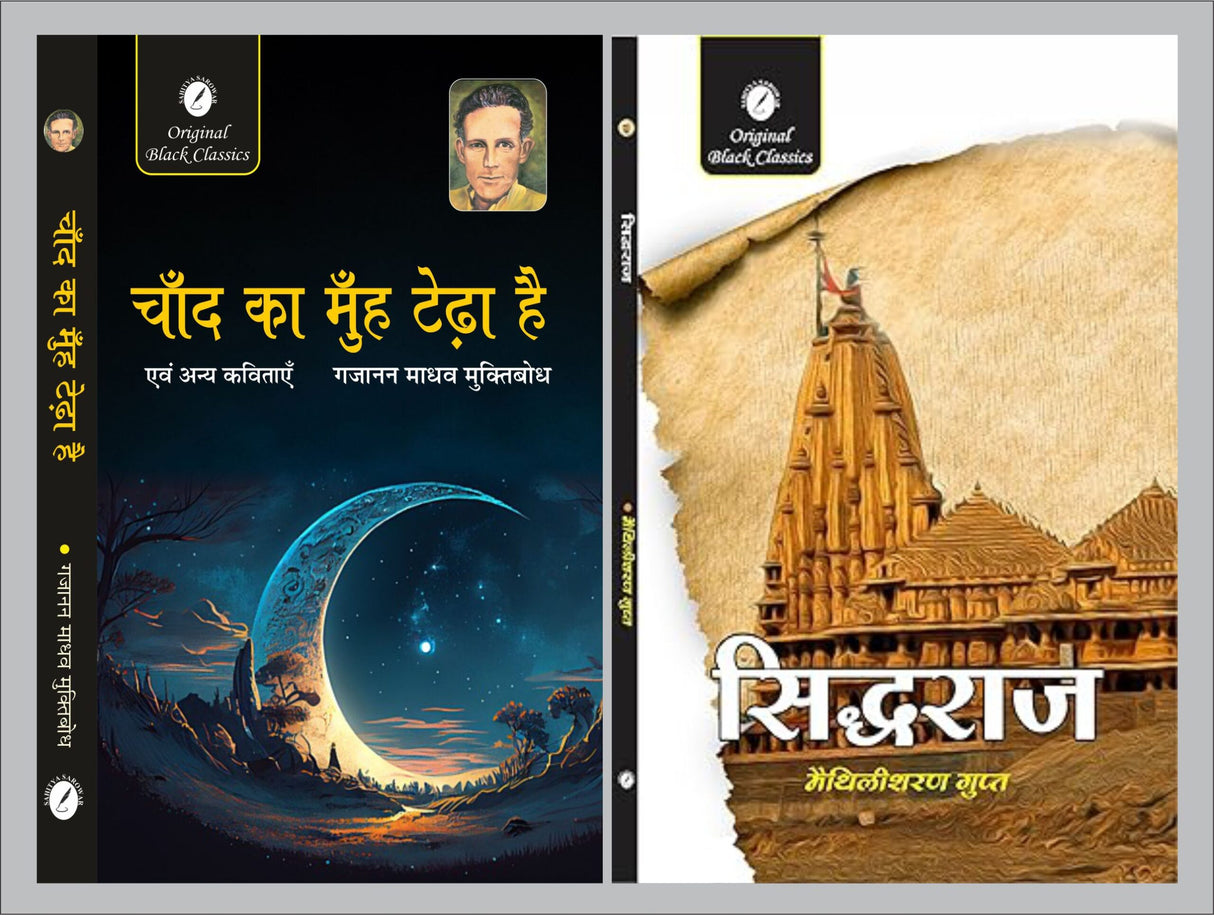Chand Ka Muh Tedha Hai evam Anya Kavitayen by Gajanan Madhav ‘Muktibodh’ & Siddhraj by Maithilisharan Gupt
Chand Ka Muh Tedha Hai evam Anya Kavitayen by Gajanan Madhav ‘Muktibodh’ & Siddhraj by Maithilisharan Gupt is backordered and will ship as soon as it is back in stock.
Couldn't load pickup availability
Genuine Products Guarantee
Genuine Products Guarantee
We guarantee 100% genuine products, and if proven otherwise, we will compensate you with 10 times the product's cost.
Delivery and Shipping
Delivery and Shipping
Products are generally ready for dispatch within 1 day and typically reach you in 3 to 5 days.
Book Details
-
Publisher: Original Black Classic
-
Language: Hindi
-
Chand Ka Munh Tedha Hai Pages: 264 | Siddhraj Pages: 344
-
Cover: Paperback
-
Chand Ka Munh Tedha Hai Dimensions: 21.5 x 14 x 1.5 cm | Siddhraj Dimensions: 21 x 14 x 2 cm
-
Chand Ka Munh Tedha Hai Weight: 325 g | Siddhraj Weight: 435 g
About Chand Ka Munh Tedha Hai
“Chand ka Muh Tedha Hai” was the first collection of Muktibodh’s poems, which was published during his lifetime. This collection reflects the various emotions and thoughts seen in Muktibodh’s writings. In the book, Muktibodh has written on various aspects of society, politics, and human existence. His poems are often deep and thought-provoking, and they also address the social and political contexts of his time. Widely considered an important work of Hindi literature, this book plays a significant role in enriching modern Hindi poetry.
About Siddhraj
Siddhraj, a poem by Maithilisharan Gupt, depicts the powerful and transformative journey of Siddhartha, who later becomes Buddha. It explores themes of renunciation, enlightenment, and the path to spiritual awakening. The poem focuses on the key events in Siddhartha’s life leading to his enlightenment, including his decision to leave the comforts of his princely life and his eventual realization of the Four Noble Truths.





